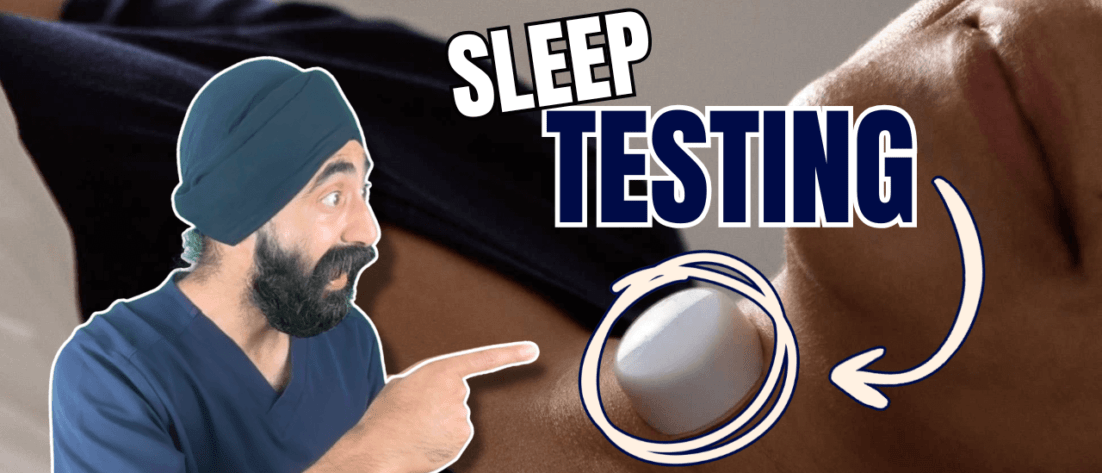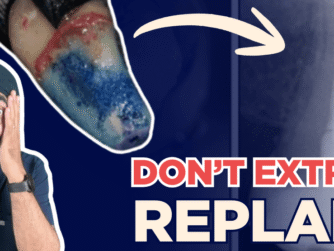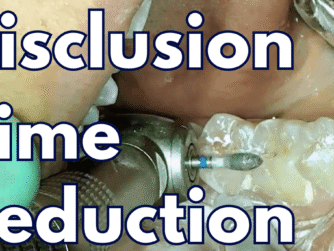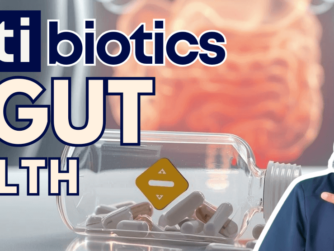Podcast: Play in new window | Download (Duration: 1:17:49 — 107.8MB)
Subscribe: RSS
Can and should Dentists carry out home sleep testing?
It’s actually super easy and I have been doing it for 18 months!
What happens after you screen them—do you know what to do next? This episode will teach you!
Dr. Jaz Gulati shares his personal journey into incorporating sleep testing in practice—after 1.5 years of doing it, the impact has been nothing short of game-changing.
Joined by clinical sleep scientist Max Thomas in this jam-packed episode, they deep dive into what it really means to go beyond awareness of sleep-disordered breathing. He breaks down the practical steps for dentists who want to do more than just refer—and start making a difference in their patients’ lives.
You’ll learn how to bridge the gap between theory and action, how to screen effectively, and why you play a pivotal role in the patient’s journey to better sleep, more energy, and a healthier life.
Protrusive Dental Pearl: If a patient has been seen gasping, choking, or stopping breathing during sleep — that’s pathognomonic for sleep-disordered breathing.
🛑 Don’t ignore it — they likely need a sleep study. Ask this in every history!
Need to Read it? Check out the Full Episode Transcript below!
Key Takeaways:
- Understanding obstructive sleep apnea is crucial for dentists.
- Dentists are in a unique position to screen for sleep disorders.
- The Malampati score is an easy tool for assessing airway obstruction.
- Sleep disorder breathing can significantly affect quality of life.
- Patient history is vital in diagnosing sleep apnea.
- Quality of sleep is more important than quantity.
- Dentists should ask specific questions to identify sleep issues. Sleep position can significantly affect sleep quality.
- Screening tools like Stop Bang and Epworth are essential for identifying sleep disorders.
- NHS sleep testing can vary greatly in wait times depending on location.
- Snoring is often a precursor to more serious sleep disorders.
- Dentists can play a crucial role in sleep disorder management.
- CPAP is the gold standard for treating sleep apnea.
- Understanding the legalities of sleep screening is vital for dental professionals. Remote monitoring became essential during COVID-19, shifting paradigms in sleep medicine..
- Remote monitoring helps ensure patients are truthful about their usage of devices.
- Mandibular advancement devices may be more effective for certain patient profiles.
- Patient compliance is crucial, with many struggling to adapt to CPAP.
Highlights of this episode:
- 00:00 Teaser
- 01:15 Intro
- 04:51 Protrusive Dental Pearl
- 05:52 Introducing the Expert: Max Thomas
- 09:39 Importance of Screening and Diagnosis
- 13:41 “Crowding” at the Back of the Mouth
- 14:46 Mallampati Score
- 18:54 Understanding Sleep-Disordered Breathing
- 25:35 Screening Tools and Techniques
- 32:09 Screening Questionnaires
- 37:24 Midroll
- 40:44 Screening Questionnaires
- 40:53 Athlete Sleep Screening and Marginal Gains
- 44: 20 Identifying Patients for Sleep Testing
- 46:15 Snoring: Risk Factor for OSA
- 51:44 Mandibular Advancement Devices and Legalities
- 55:33 Diagnostic and Treatment Options
- 56:57 CPAP: The Gold Standard for Sleep Apnea
- 01:08:33 Retesting Before MAD
- 01:14:41 Dentists Warning about DVLA Implications
- 01:17:18 Final Thoughts and Recommendations
- 01:19:19 Outro
Resources for Screening Sleep Apnea
Screening Tools
- The Acupebble Device
- WatchPAT as an alternative
- Send your sleep test for reporting to Max Thomas – excellent service and affordable
- Max Thomas’ LinkedIn
If you loved this episode, don’t miss Sleep Disordered Breathing and Dentistry – PDP139
#PDPMainEpisodes
This episode is eligible for 1 CE credit via the quiz on Protrusive Guidance.
This episode meets GDC Outcomes A, C, and D.
AGD Subject Code: 730 ORAL MEDICINE, ORAL DIAGNOSIS, ORAL PATHOLOGY (Sleep Medicine)
Aim: This episode is aimed at empowering general dentists with the knowledge and practical steps to actively participate in the screening and co-management of sleep-disordered breathing through the integration of home sleep testing in their clinical practice.
Dentists will be able to –
- Understand the role of general dentists in identifying signs and symptoms of sleep-disordered breathing, particularly obstructive sleep apnea (OSA).
- Identify when and how to refer appropriately to sleep physicians or medical specialists after screening.
- Explore collaborative workflows between dentists, sleep scientists, and GPs to ensure effective patient management.







